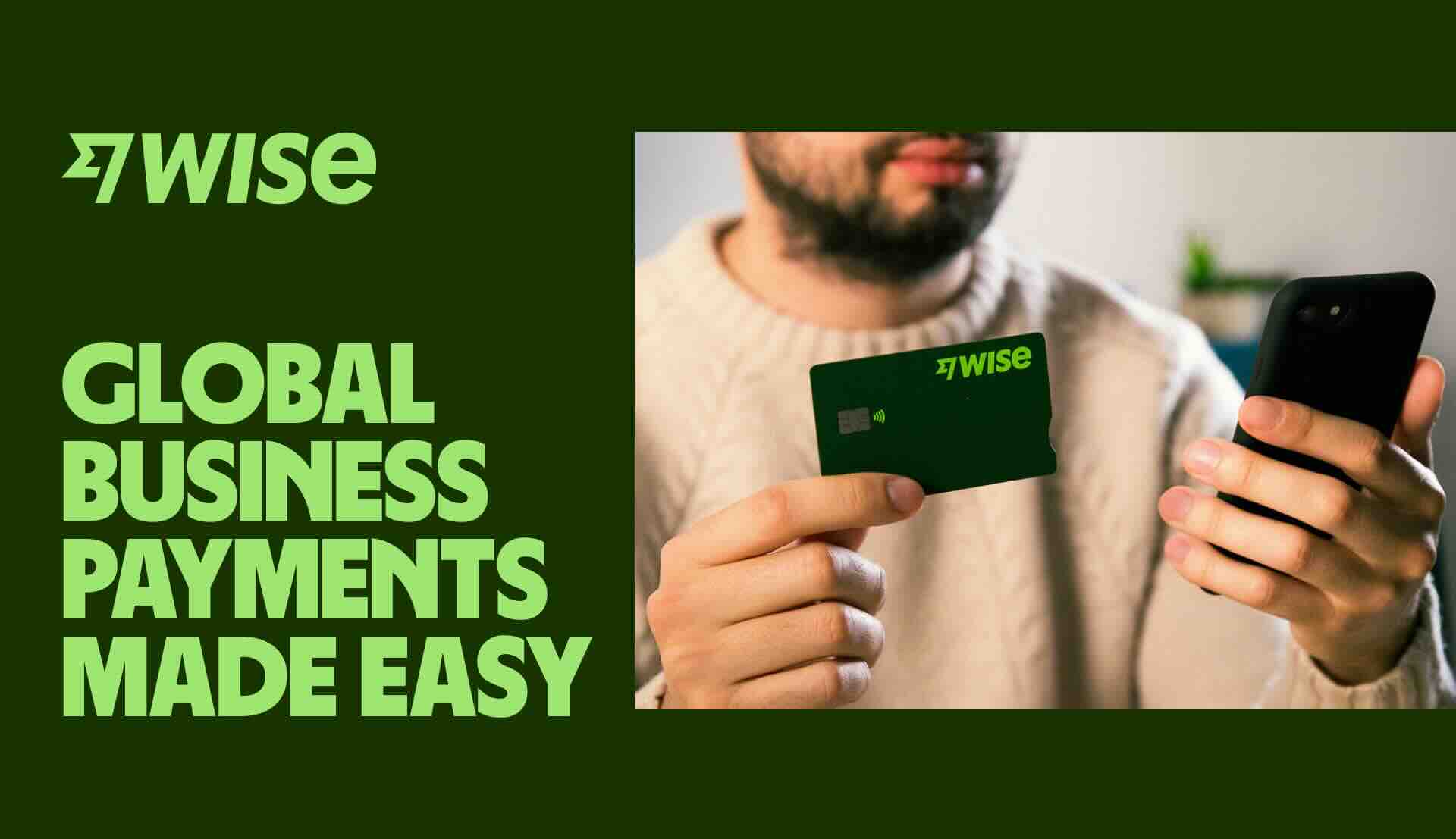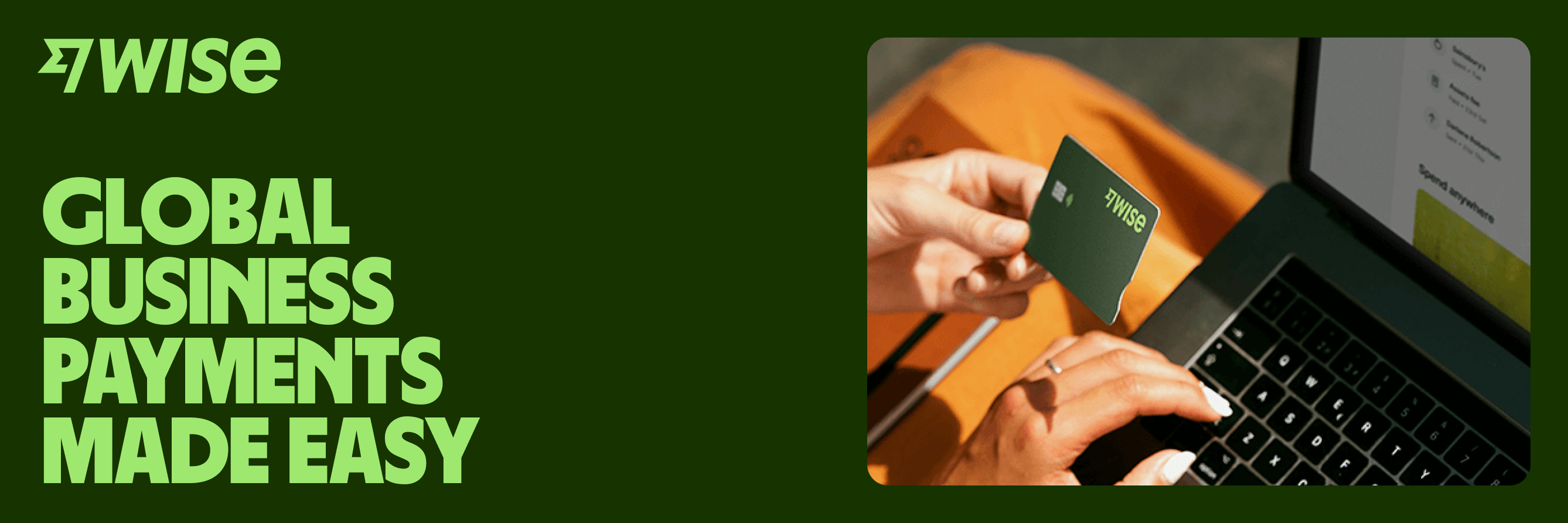Mettle business bank account review UK
Learn about Mettle business bank account, its core features, limitations, eligibility requirements, fees and customer service.

Planning on starting a business in Thailand? Entrepreneurs and businesses looking to expand into Thailand will find a country with modern legal and banking systems and access to a very dynamic local economy.
If you’re thinking of setting up a new enterprise in Thailand, you'll need to apply for a new, local bank account for your business. Here’s a quick guide to help you do just that.
This includes the documents you’ll need, the steps involved, any costs and a rundown of expat-friendly banks. We’ll also show you an alternative way to manage business finances in Thailand, with the powerful Wise Business multi-currency account.
Get started with Wise Business 🚀
The Thai legal system recognises the following company structures;
The structures have different functions and each comes with its own advantages. If you’re unsure which company type is best for your venture, take local legal advice.
It's possible to open a corporate bank account in Thailand with a foreign corporate entity, although it depends on the bank. The process is similar to a locally registered company, but it may be a little slower and more complicated. For example, you may need to have documents notarised and certified by the local Thai embassy in your country.¹ You may also need to show the government issued certificate or license which allows you to trade in Thailand.
Additionally, you might find that services are limited for non-resident accounts - so you may not be able to use online banking, for example.¹
To find out more, you should contact the banks you’d like to open an account with and ask about their requirements and eligibility criteria.
To open a business bank account in Thailand you'll need to prepare some required documents, complete an application form (which you can download from the bank website), and attend a meeting with a relationship manager at your local branch.
It's worth knowing that banking in Thailand is still fairly traditional, and individual bank staff and managers may have the final say on your suitability for an account. Attending your appointment on time, dressing smartly and being polite are all things that could help win over bank staff.
The specific documents needed will vary between banks, but you can expect to be asked for the following:
Foreign companies and non-resident directors may also be asked for:¹
It usually takes around a week to open a business bank account in Thailand. However, it could take longer than this if the bank needs to do additional checks or needs more paperwork from you. It also depends on the efficiency of the bank’s processes.
It is possible to open a bank account in Thailand as a non-resident, although it depends on each bank’s own policies. However, if your business is registered overseas then you may only be able to choose from a more limited range of accounts.
It's not usually possible to open a local business bank account from abroad. This is because in nearly all cases, it’s a requirement for a director or signatory to visit a branch in person.
However, an international bank such as HSBC or Citibank might be able to help you open an account at your local branch and then transfer it later to the Thai branch closest to you. If you want to open an account before you arrive in Thailand, it's worth talking to your local bank to see if they've a local operation or a partner in Thailand which can help you.
It's not possible to open a business bank account online in Thailand. This is because in most cases, you’ll be required to present your documents in person, at a branch
Thailand has a wide range of local banks, with international banks such as HSBC, Citibank and The Bank of Tokyo-Mitsubishi also operating. These main local banks are listed below, and all offer some business banking services and products.
Bangkok Bank is Thailand’s largest by total assets. They offer banking for SMEs and larger businesses, including accounts, payment cards and financing.
Application forms for accounts and other products are available online, and you can open a business account for everyday banking with just a 500 baht minimum deposit.²
Another of Thailand's largest, Siam Commercial Bank offers a wide range of corporate banking services.
This includes accounts, cash management-related services, lending products, international trade financing, treasury products, debt and capital market products, corporate advisory services and investment banking.
Kasikorn Bankhas a huge network of branches and ATMs across the country, so it could be a convenient choice. It’s also one of the largest banks in Thailand, with a good range of business banking products. This includes current accounts, loans, payment and collection services and international trade solutions.
With roots dating back to 1966, Krungthai Bank is one of the country’s most established and respected banks. It’s also part owned by the Thai Government. The bank offers SMEs current and deposit accounts, alongside payment cards and finance products. Most services can be accessed through a convenient e-Banking site.
If you’re opening an account with any of the banks above, it's a good idea to call ahead and make an appointment. You can confirm the documents required and request an English speaking staff member to help you if needed.
Before you choose which business bank account you'll open in Thailand, it's important to read the terms and conditions carefully. Look especially at the section on banking fees and charges.
Fees and charges might not be the same as in your home country. It’s common to find monthly account handling charges, and fixed fees for banking transactions. Even when these fees look small, they can build up over time.
Another costly challenge for entrepreneurs is making international money transfers. From time to time, most businesses need to send money abroad - for example, to pay suppliers based overseas. It’s worth paying special attention to the fees applied by your bank when you move money or make direct payments between accounts which use different currencies.
The problem is that many banks don't offer a good deal to their customers when making international money transfers like this. If your bank’s exchange rate is lower than the real mid-market rate, then you’re paying more in fees than is necessary.


Banks aren’t the only way to manage your business finances in Thailand.
If you’re looking for a flexible and quick-to-open alternative, check out Wise Business. It's specially designed to cut the cost of international payments, and you can manage business finances in 40+ currencies including Thai baht (THB) and GBP.
Cover expenses with Wise Business debit cards, make easy batch payments to employees worldwide, and integrate with business tools for easier accounting. You can even earn a return on the money you hold in certain balances your multi-currency account with Wise Interest.
Investments can fluctuate, and your capital is at risk. The Variable rate is based on the performance of the Fund over a 7-day period ending on 9/26/2025. The Fund has achieved an average annual return of 2.76% over a 5-year rolling period exclusive of fees. Interest is offered by Wise Assets UK Ltd, a subsidiary of Wise Payments Ltd. Wise Assets UK Ltd is authorised and regulated by the Financial Conduct Authority with registration number 839689. When facilitating access to Wise investment products, Wise Payments Ltd acts as an Introducer Appointed Representative of Wise Assets UK Ltd. Please be aware that we do not offer investment advice, and you may be liable for taxes on any earnings. If you're uncertain, we urge you to seek professional advice. To find out more about the Funds, visit our website.
Sources used:
Sources last checked on date: 05-Sep-2025
Disclaimer: The UK Wise Business pricing structure is changing with effect from 26/11/2025 date. Receiving money, direct debits and getting paid features are not available with the Essential Plan which you can open for free. Pay a one-time set up fee of £50 to unlock Advanced features including account details to receive payments in 22+ currencies or 8+ currencies for non-swift payments. You’ll also get access to our invoice generating tool, payment links, QuickPay QR codes and the ability to set up direct debits all within one account. Please check our website for the latest pricing information.
*Please see terms of use and product availability for your region or visit Wise fees and pricing for the most up to date pricing and fee information.
This publication is provided for general information purposes and does not constitute legal, tax or other professional advice from Wise Payments Limited or its subsidiaries and its affiliates, and it is not intended as a substitute for obtaining advice from a financial advisor or any other professional.
We make no representations, warranties or guarantees, whether expressed or implied, that the content in the publication is accurate, complete or up to date.

Learn about Mettle business bank account, its core features, limitations, eligibility requirements, fees and customer service.

Wondering what are the fees related to Revolut's Business Account? Read our complete review of plans and service fees.

A guide to the Starling sole trader account vs. business account, comparing the two on features, fees and eligibility.

Can you use Airwallex in Singapore? Find out here in our essential guide for UK businesses, covering everything you need to know.

Find the best business bank accounts in Canada with our easy guide. We compare top banks and digital providers so you can choose what fits your business best.

AIB offers three types of business current accounts. Each of these accounts is specifically tailored to a segment of the market.